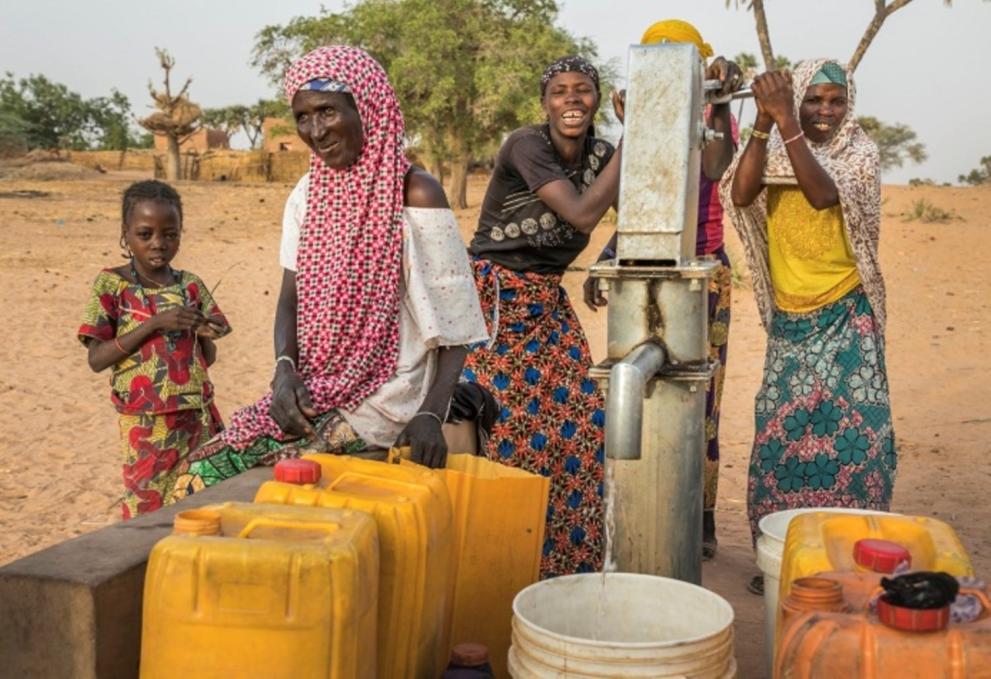
The Joint Valletta Action Plan, adopted by European and African leaders at the Migration Summit in 2015, framed the decision to respond together to migration into five priority domains. Since then common work has mobilised more than EUR 11.7 bn for more than 1,200 projects and policies.
High Representative / Vice-President Federica Mogherini said at the last Senior Officials Meeting that "migration can be managed together through partnership, cooperation and respect" and that "we need to make sure that our actions have also an immediate impact".
Senior officials from across Europe and Africa meet today and tomorrow in Addis Ababa, Ethiopia, to follow up on the progress made.
The Rabat Process and the Khartoum Process, which have been mandated to monitor and report on the implementation and progress of the Action Plan, have produced their respective Analysis Report in which they take stock of the work to date.
The partnership approach between African and European partners delivers results.
In the field of development benefits of migration and addressing the root causes of irregular migration over 5,3 million vulnerable people benefitted from basic services, food security and nutrition programmes.
Opportunities, especially for the young generation, are vital: 48,000 people received professional training or developed their skills. This follows the objective of High Representative / Vice-President Federica Mogherini who said that "the youth of Africa is the biggest resource Africa has".
In its second domain the Joint Valletta Action Plan addresses regular channels for migration and mobility from and between European and African countries.
One example is the European Union's Erasmus+ programme. There have been over 20,000 exchanges between European and African students and staff during 1,000 Erasmus+ projects in the last 3 years, with over 15,000 African students and researchers benefitting from it.
The newly launched 'Africa - Europe Alliance for Sustainable Investment and Jobs' will increase the support for scholarships and exchange programmes with the goal of over 100,000 students benefitting from Erasmus+ in the next ten years.
Saving and protecting lives is the EU's most urgent priority, the third domain of the Action Plan.
With the EU's contribution, over 2,000 refugees have been evacuated from Libya with the UN Refugee Agency in view of further resettlement to Europe and other states.
In its fourth priority the Joint Valletta Action Plan pursues the fight against irregular migration, migrant smuggling and trafficking in human beings.
The Better Migration Management Programme, a programme funded by the European Union and the German Federal Ministry for Economic Cooperation and Development, has assisted more than 15,200 migrants with its work.
Warsama Abib Ibrahim, a doctor in Djibouti, knows the suffering of migrants. Thanks to the Programme a health centre was built and mobile teams operate across the country.
On smuggling and trafficking, the Joint Investigation Team, a team of French, Spanish and Nigerien officials, financed by the EU Emergency Trust Fund for Africa with €6 million, is an example of joint efforts to break the cruel business model of smugglers and traffickers: it has supported investigations on 137 alleged smugglers and traffickers.
Facilitating return, readmission and reintegration are the work strands of the Action Plan's fifth priority domain.
Joint work of the African Union, the European Union, together with the United Nations to address the migrant situation in Libya "has created an unprecedented mechanism for cooperation between our continents, a system where we identify our common interests, our common priorities and work together on concrete, practical, sustainable win-win solutions", High Representative / Vice-President Mogherini underlined. They have assisted more than 38,000 people to return from Libya safely to their homes.
And the EU-IOM Joint Initiative for Migrant Protection and Reintegration which cooperates with 26 African countries has supported over 38,500 migrants with their return; over 33,300 migrants were screened for vulnerabilities and received reintegration counselling and over 10,500 received economic support.
Behind these examples "are real stories, families, relatives, friends, who often do not even know the fate of their dearest ones", the High Representative said. The EU and Africa will continue working together to find common solutions which answer the needs of people.
Details
- Publication date
- 14 November 2018
- Thematic
- Improved migration management
